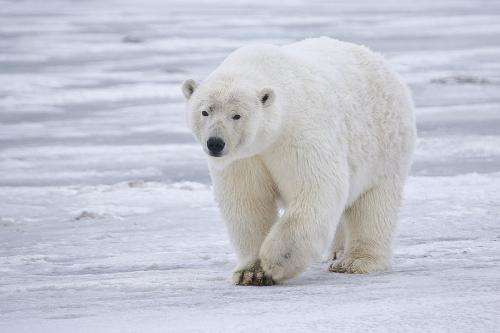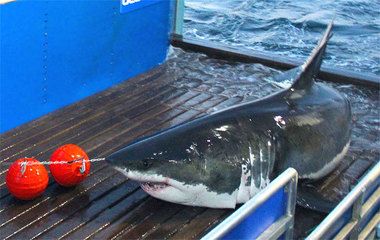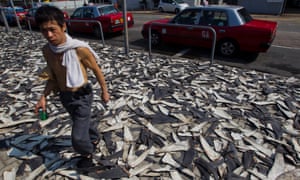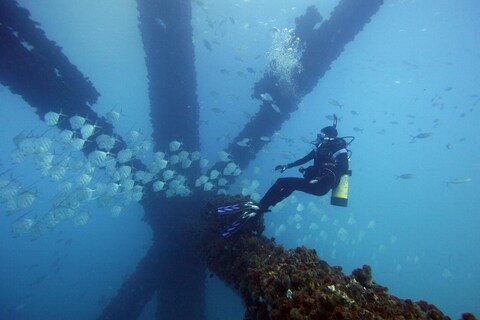Have you ever wondered how fish have the ability to just vanish in the ocean? As SCUBA divers, we wonder this quite a bit. A study performed by a team from The University of Texas reported that two ocean fish- the big-eyed scad and the lookdown- both have a method to avoid predators by hiding in light. The fish have a unique and microscopic element on the surface of their skin that reflects polarized light. The US Navy is now interested in studying these species to see how it could be used to potentially hide deep open water vessels. Read more…
 This week, a team of scientists published an article in PLOS ONE revealing that polar bears have increasingly used land habitats as a response to their sea ice habitats. Polar bears will generally use land during the summer season and during the winter for maternal denning. the proportion of bears on land for more than 7 days has increased 18.9%. The implications of the increased land use is unclear but, the polar bears are now spending more time in areas without access to their marine prey. Read more…
This week, a team of scientists published an article in PLOS ONE revealing that polar bears have increasingly used land habitats as a response to their sea ice habitats. Polar bears will generally use land during the summer season and during the winter for maternal denning. the proportion of bears on land for more than 7 days has increased 18.9%. The implications of the increased land use is unclear but, the polar bears are now spending more time in areas without access to their marine prey. Read more…
 Months ago we reported on the famous great white shark named Mary Lee. Mary Lee was tagged by OCEARCH in 2012 and has been tracked up and down the east coast. This week Mary Lee was found off the coast of New Jersey. OCEARCH has kept track of Mary Lee’s movement in hopes to learn more about the evolution of shark habitats. Read more…
Months ago we reported on the famous great white shark named Mary Lee. Mary Lee was tagged by OCEARCH in 2012 and has been tracked up and down the east coast. This week Mary Lee was found off the coast of New Jersey. OCEARCH has kept track of Mary Lee’s movement in hopes to learn more about the evolution of shark habitats. Read more…
5. UK Reversing and Undoing Climate Change Policies
 This week, the UK government announced that it would end the use of unabated coal by 2023 to “improve air quality, protect the health of our population, and reclaim the UK’s leadership position in tackling climate change”. Although this statement was made, the government has cut energy efficiency policies, closed or cute subsidy schemes for wind and solar power, and put a carbon tax on carbon-free renewable energy. In two weeks, UK and the other nations meet in Paris to discuss the international action required to make and impact on climate change. Read more…
This week, the UK government announced that it would end the use of unabated coal by 2023 to “improve air quality, protect the health of our population, and reclaim the UK’s leadership position in tackling climate change”. Although this statement was made, the government has cut energy efficiency policies, closed or cute subsidy schemes for wind and solar power, and put a carbon tax on carbon-free renewable energy. In two weeks, UK and the other nations meet in Paris to discuss the international action required to make and impact on climate change. Read more…
Be sure to “LIKE” http://facebook.com/SeaSave to ensure our “Week in Review” is delivered to your newsfeed every Thursday.






